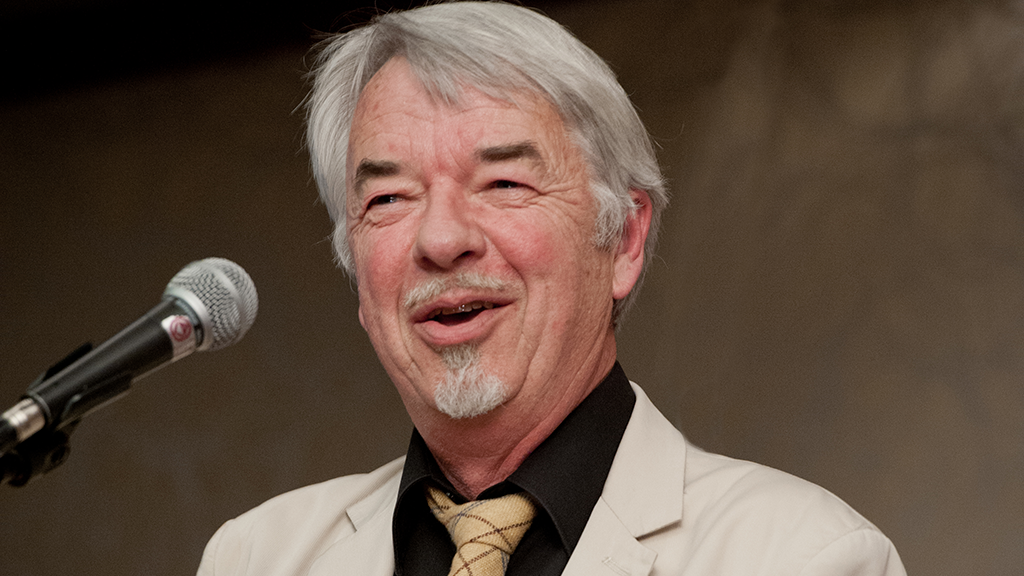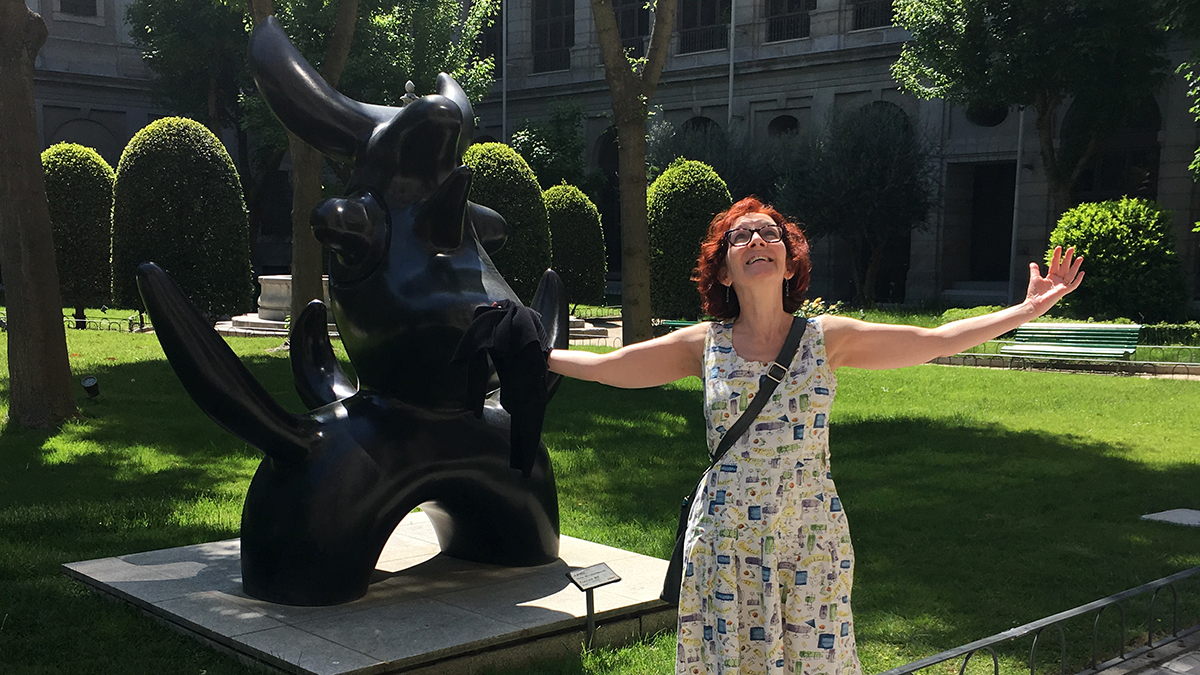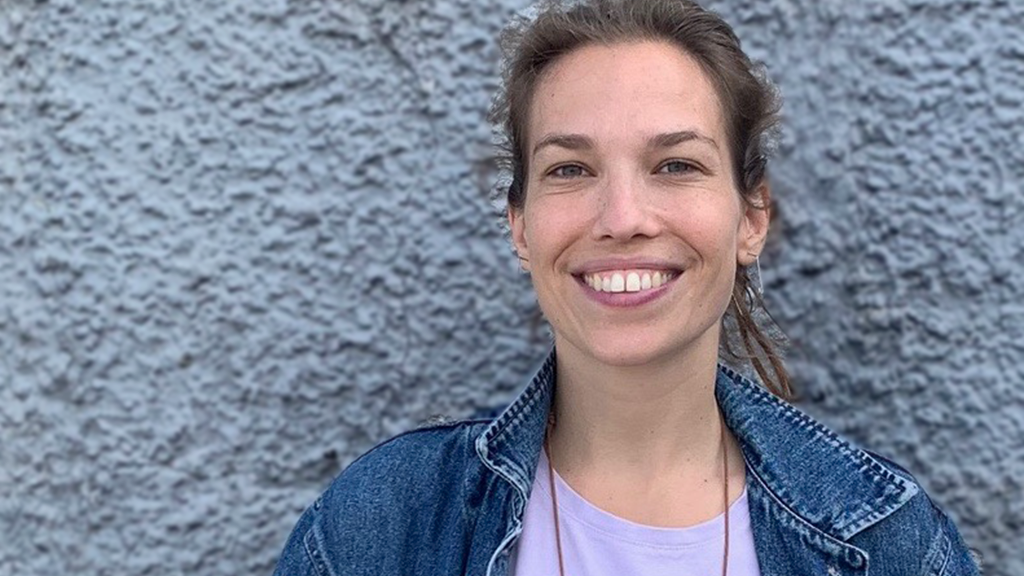30th anniversary
In spring 2021, the Graduate Liberal Studies Program celebrates its 30th anniversary. It has been an exciting 30 years and we are grateful for the hard work of many students and alumni in making this happen.
Although the plans to celebrate with in-person alumni events and dinners have been put on a hold due to COVID-19, we have planned a series of online anniversary seminars open to all students and alumni where we can reconnect in the GLS spirit of compassion, laughter, ideas, and conversation.
GLS 30th Anniversary Seminar Series
In celebration of our 30th anniversary, GLS is introducing a seminar series to reflect on our journey over the last three decades, and how far we have come thanks to the collaboration and support of our students, alumni, faculty, staff, and countless other partners and supporters. This seminar series reflects upon the theme of "Letters..."
Letters Now and Zen: Heesoon Bai with LS 812 | February 10, 2021 | 7:30 – 9:30 pm | Register
Fire fighters put on asbestos suits to jump into the fire; underwater divers put on diving suits before they plunge into ocean depths; Heesoon and her LS 819 Colleagues will put on Zen Suits to inter-face with the ‘everyday trauma’ of pandemics. Neurobiologically speaking, the nervous system unable to handle the overwhelming input manifests trauma. Psychologically speaking, trauma resolves when an afflicted person is provided a sufficiently safe and protected space within which they have good enough opportunity to address, re-dress, and heal the wounding that has occurred. Zen philosophy and practice offers such a space. This event will feature Haiku, Koan, Dialogue, and other Zen-inspired performatives.
Heesoon Bai is a professor in the Faculty of Education and teaches in the GLS program at SFU. Following Raimon Panikkar’s (1918-2010) lead, Bai understands philosophy’s task for today’s troubled world to be “to know, to love, and to heal.” She brings this three-fold task of philosophy into her teaching and research. Her current research interests cluster around examining and deconstructing ontological and epistemological assumptions that underlie our cultural practices, our ethics and aesthetics. In her work she calls for reanimation of our selves within all spheres of human beingness in the service of living ethically and in beauty. Ethics and aesthetics are one. Through contemplative inquiry and practices, such as Zen, she offers ways to experiment with replenishing, nourishing, and animating our being.
Seminar readings: Bai (2020) and Epstein (2013)
Letters from Mirth: Gary McCarron with LS 898 | March 18, 2021 | 7:30 – 9:30 pm | Register
British literary theorist Terry Eagleton’s 2019 book, Humour, is organized with its author’s usual penchant for theory, and thus the superiority thesis of humor, the incongruity thesis, and the theory of catharsis all receive their due share. However, Eagleton is also concerned with many other aspects of the comedic domain such as the physiology of laughter, and the way that humor (and humourlessness) sometimes shapes our perception of historical subjects (why does Jesus weep, Eagleton asks, but never laughs). It is also a delight to see so many names from the GLS canon show up to take a bow. Everyone is here from Aristotle to Žižek, from Augustine to Shakespeare, from Mel Brooks to Søren Kierkegaard. They aren’t always funny, but once in a while something amusing manages to slip out. As Eagleton says, there are times when humour “exists purely for the joy of the contact.” And what better way to stay in contact than a shared chuckle.
Gary McCarron is GLS Graduate Chair, and a member of the GLS Steering committee. He is also an associate professor in the School of Communication at SFU. His current research interests include health studies; film studies; history & theory of communication; privacy & technology; advertising & consumer culture.
Seminar reading: Eagleton, Terry. Humour. Yale Universituy Press, 2019
The Language of Letters: Bill Dow, Eileen Barrett, Sasha Colby with LS 801 | April 7, 2021 | 7:30 – 9:30 pm | Register
Two award winning poets. Thirty years. 800 pages of letters. In Dear Elizabeth, playwright Sarah Ruhl whittles down the correspondence of poets Elizabeth Bishop (1911-1979) and Robert Lowell (1917-1977) into one two-act stage play. This 30-year journey in letters explores what it means to think about life, love, and literature at a distance. This event will feature a reading from the play by actors and GLS alumni Eileen Barrett (Elizabeth Bishop) Bill Dow (Robert Lowell) with Sasha Colby (the voice of the play). Discussion to follow.
Sasha Colby is director of the Graduate Liberal Studies program. Her recent work asks how modernist literature and its contexts can be newly explored through drama, fiction, and literary non-fiction. She is the author of Staging Modernist Lives: H.D., Mina Loy, Nancy Cunard, Three Plays and Criticism (McGill-Queen's UP, 2017) and Stratified Modernism: The Poetics of Excavation from Gautier to Olson (Peter Lang, 2009).
Eileen Barrett is a GLS alumnus and actor known for roles in Hector and the Search for Happiness (2014), Stargate SG-1 (1997) and Fringe (2008).
Bill Dow is a GLS alumnus and an actor, director and writer in theatre, film, and television. He is best known for playing Bill Lee in the Stargate franchise.
Seminar reading: Dear Elizabeth by Sarah Ruhl
Please note: attendees will need a copy of Dear Elizabeth to participate in the seminar. Please purchase a copy from your preferred bookseller.
'Appealing for Release': Ivor Gurney's 'mad' asylum letters: Kate Kennedy | April 24, 2021 | 10:00 am – 12:00 pm | Register
Ivor Gurney (1890 - 1937) was unique in being both a poet and a composer. He survived the worst of the trenches of the First World War, only to find himself so mentally unstable that he was forcibly locked in a lunatic asylum for the last 15 years of his life. From there he could do nothing but write - letters that were poems, poems that were letters, to people, places, imaginary recipients. These letters have been forgotten about in archives ever since, but they are beautiful, tragic and eccentric in equal measure. Most importantly, they are an unprecedented window into the mind of an asylum patient - a voice that speaks articulately for a generation of silenced men incarcerated after the war.
Kate Kennedy is associate director of the Oxford Centre for Life Writing. She is a broadcaster and writer, who specialises in combining biography, words and music. She is a regular presenter and contributor for Radio 3, and her documentaries have been selected for Pick of the Week by the BBC, and Pick of the Year 2018. Her Sunday Features tell the stories of musicians and writers from 1600s to the present. She is a regular contributor to Record Review, Building a Library, the Proms Plus series, Composer of the Week, The Essay and Music Matters, and has featured as the guest on Essential Classics.
Seminar reading: Selected Letters of Ivor Gurney
The events have passed
The seminars have now finished. Thank you for your participation!
Congratulations from the Dean
I congratulate Graduate Liberal Studies on the occasion of its 30th anniversary. We appreciate the niche that the program fills in the Faculty of Arts and Social Sciences. In establishing an immersive program that attracts dedicated student followers, the faculty, students and alumni of GLS have melded a community of lifelong learners with lasting bonds formed around respectful debate and common interests. May your next 30 years be equally successful.
Sincerely,
Jane Pulkingham,
Dean, Faculty of Arts and Social Sciences
A message from Professor Emeritus Stephen Duguid
It is sometimes difficult to believe, but 2021 will be the 30th Anniversary of the Graduate Liberal Studies Program. We planned to celebrate with an Alumni Dinner, a prominent Keynote speaker for the Babcock Lecture, and several new, exciting alumni programs. Unfortunately, our plans were quickly overtaken by COVID-19, the ‘bug that went viral’ and still promises to make 2021 look and feel like a repeat of 2020. So, all anniversary plans are on hold until the “all clear” is sounded.
In the meantime, your soon-to-be fellow GLS Alumni are taking their courses virtually and defending projects via Zoom. You might remember the, pre-class group dinners and post-class retreats at a bar to continue heated discussions after LS 800, which comprise such a rewarding part of our program—experiences sadly missed by the 2020 cohort. Be assured, though, that they are still loving the seminars, arguments, and occasional brilliant interventions just as in Liberal Studies seminars in the past.
But ... GLS students are like many citizens living in the midst of a prolonged pandemic. Some are suffering financial stress due to job losses or layoffs. In 2020 we had to work hard to divide up our limited student aid funds to keep some students enrolled in courses. In discussions led by the Program’s Director Prof. Sasha Colby, Prof. Gary McCarron our Graduate Chair, and the Program Steering Committee we decided that the best way forward with our 30th Anniversary activities would be to seek to enhance the endowments that support our various Awards for GLS students in need.
If you are able, please consider supporting one or more of the following endowments that produce annual awards to GLS students working toward their MALS degrees:
- Ewan Clark Memorial Endowment: This award recognizes and provides financial assistance to an artist, musician, writer or actor enrolled full-time in the GLS program.
- L.R. (Bunny) Wright Memorial Endowment: This scholarship is awarded to exceptional students in the GLS program.
- Stephen Duguid Endowment (Jean-Jacques Rousseau Award): This award supports outstanding students in the GLS program.
Either way, I hope you’ll join me in celebrating how far our program has come. I suspect that all those involved in the GLS Program from the start in 1991 would be surprised and pleased that 30 years later GLS is in such vibrant shape—despite the pandemic. Certainly I am!
With appreciation,
Stephen Duguid
Simons Chair, GLS
Departmental news
-
November 05, 2020
-
November 30, 2020
-
December 10, 2020




